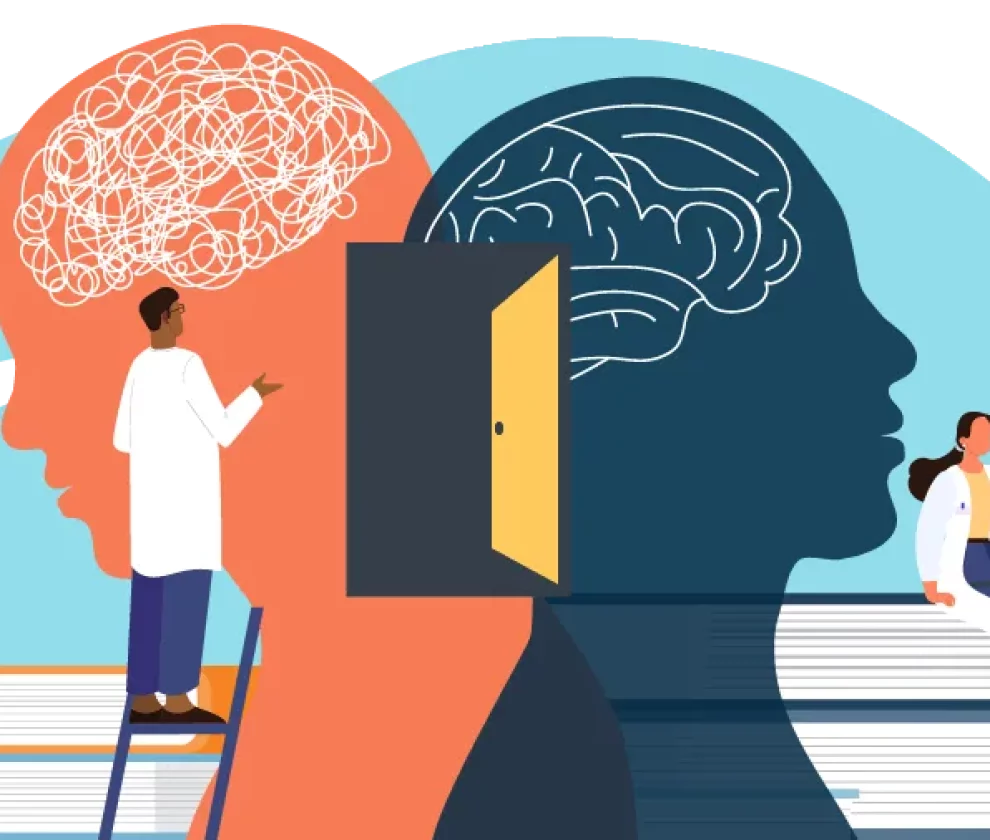Sleep is essential for maintaining a healthy mind and body, yet many people underestimate its importance. Sleep deprivation—whether acute or chronic—can disrupt brain function so severely that it leads to delirium. This condition, marked by confusion, hallucinations, and cognitive impairment, poses a serious risk, particularly for vulnerable groups like older adults and ICU patients. In this article, we explore how much sleep deprivation can cause delirium, the effects on the brain, and actionable steps to prevent it.
Sleep Deprivation and Delirium
Acute sleep deprivation refers to a sudden, significant loss of sleep over a short period. For example, missing an entire night of sleep or reducing total sleep time to less than 4 hours can have immediate effects on brain activity and mental status. A recent study highlighted that even one night of insufficient sleep can impair cognitive function, slow reaction time, and disrupt the sleep-wake cycle, all of which increase the risk of delirium.
- ICU Patients: Critically ill patients often experience sleep disruption due to mechanical ventilation, hospital stay routines, and constant monitoring. These factors, combined with preexisting health issues, make them particularly susceptible to ICU delirium.
- Effects on Cognitive Function: Acute confusional states, or hyperactive delirium, can emerge in patients experiencing severe sleep deprivation. Symptoms may include agitation, hallucinations, and difficulty maintaining a coherent mental state.
Chronic Sleep Deprivation
Chronic sleep deprivation—persistent lack of good sleep over weeks or months—can significantly impact brain health and increase the likelihood of developing delirium. Sleep Medicine experts note that poor sleep quality and insufficient deep sleep interfere with the brain’s ability to consolidate memories and regulate emotions.
Elderly patients face higher risks of sleep problems due to aging-related changes, including shorter sleep duration, reduced slow-wave sleep, and lower melatonin levels, which can worsen cognitive function. Research, including systematic reviews in Critical Care Medicine, links chronic sleep deprivation to long-term effects like Alzheimer’s and cognitive decline.
How Sleep Deprivation Affects the Brain
The prefrontal cortex, responsible for decision making and executive functions, is highly sensitive to sleep deprivation. Total sleep deprivation for even 24 hours can result in:
- Cognitive Impairment: Difficulty focusing, processing information, and recalling memories.
- Brain Activity Decline: Reduced communication between brain regions during sleep deprivation.
- Statistical Manual of Mental Disorders Insights: The DSM notes that cognitive dysfunction caused by abnormal sleep patterns can mimic symptoms of psychiatric conditions like schizophrenia.
Emotional Stability
The sleep-wake cycle regulates emotional stability. When disrupted, individuals may experience:
- Mood Swings: Irritability, anxiety, and depression.
- Delirium Symptoms: Agitation and emotional outbursts, particularly in critically ill patients.
- Higher Risk of Mental Health Issues: Chronic poor sleep increases vulnerability to conditions like bipolar disorder.
Physical Health
Sleep disorders are not just mental health concerns; they can also impact physical health:
- Cardiovascular Disease: Insufficient sleep increases the risk of heart disease and high blood pressure.
- Blood Sugar Regulation: Poor sleep habits contribute to insulin resistance, raising the risk of diabetes.
- Immune Response: Lack of slow wave sleep reduces the body’s ability to fight infections.
Symptoms of Delirium Due to Sleep Deprivation
Confusion and difficulty staying oriented to time and place are hallmark symptoms of delirium. These issues are often precipitated by acute or chronic sleep deprivation.
Hallucinations
Severe sleep deprivation can lead to auditory or visual hallucinations, especially in ICU patients and those with critical illness. Weinhouse GL et al. reported that these symptoms are common in cases of prolonged wakefulness.
Memory Problems
Delirium often presents as short-term memory loss. For hospitalized patients, sleep problems can make it difficult to remember daily events or instructions from healthcare providers.
Agitation and Mood Swings
Hyperactive delirium can cause heightened emotional responses, leading to aggression, irritability, and restlessness.
How Much Sleep Deprivation can Cause Delirium? Risk Factors for Delirium
Older adults face a higher risk of delirium due to sleep disturbance and age-related cognitive decline. Elderly patients often experience changes in melatonin levels and difficulty achieving restorative deep sleep.
Preexisting Mental Health Conditions
Individuals with conditions like depression, anxiety, or schizophrenia are more vulnerable to the negative effects of sleep deprivation, including cognitive impairment and mental state changes.
Substance Use
Alcohol and caffeine disrupt the natural sleep cycle. Substance use can exacerbate sleep latency and prevent individuals from achieving enough sleep.
Medical Conditions
Critical illness, cardiac surgery, and respiratory depression are among the medical conditions that increase the likelihood of developing delirium from sleep deprivation.
Preventing Delirium Through Proper Sleep Hygiene
Consistent sleep habits, such as maintaining the same bedtime and wake time, help regulate the body’s natural rhythms.
Creating a Comfortable Sleep Environment
A dark, quiet, and cool bedroom can improve the quality of sleep and reduce sleep disturbance.
Limiting Caffeine and Alcohol Intake
Avoiding stimulants and depressants close to bedtime can help maintain a healthy sleep-wake cycle.
Managing Stress and Anxiety
Relaxation techniques, such as meditation and journaling, can reduce mental stress and improve sleep habits.
Treatment Options for Sleep Deprivation and Delirium
Healthcare providers may recommend medications to manage severe sleep problems or symptoms of delirium. These may include melatonin supplements to support the body’s natural sleep-wake cycle.
Cognitive Behavioral Therapy for Insomnia (CBT-I)
CBT-I is an evidence-based approach that addresses negative thought patterns contributing to poor sleep quality.
Lifestyle Changes
Incorporating regular exercise, a balanced diet, and healthy sleep habits can significantly reduce the risk of delirium.
When to Seek Professional Help
Confusion, disorientation, and memory problems that persist despite improved sleep habits may indicate a need for professional evaluation.
Consulting a Healthcare Professional
Healthcare professionals can conduct a sleep analysis to identify underlying causes of sleep deprivation and recommend appropriate interventions.
Moving Forward with Sleep Deprivation Delirium
Good sleep is critical for cognitive function, emotional stability, and overall health. The effects of sleep deprivation extend far beyond fatigue, contributing to serious conditions like delirium.
So how much sleep deprivation can cause delirium? Well there’s not a sure answer as its different for everyone but chronic sleep deprivation has far-reaching consequences, including increased risk for heart disease, cognitive dysfunction, and long-term cognitive decline.
Taking Action to Improve Sleep Quality
By adopting proper sleep hygiene, seeking professional help when needed, and addressing underlying medical conditions, individuals can protect their health and reduce the risk of developing delirium.




